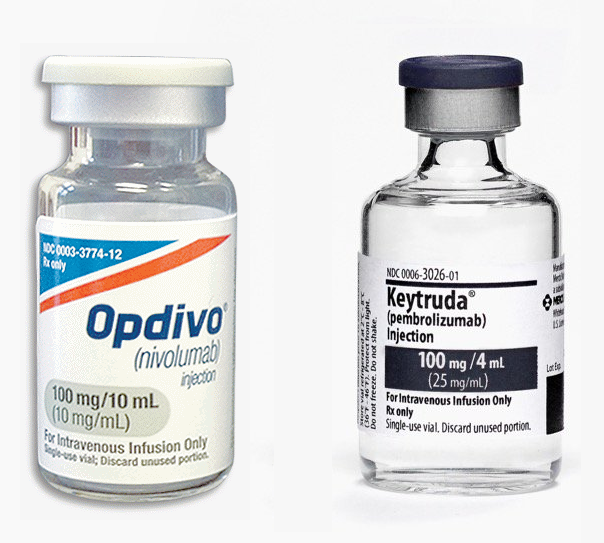Two months after the U.S. Food and Drug Administration halted Merck & Co’s Keytruda clinical trials, the agency put a similar brake on Bristol Myers Squibb’s Opdivo trials Thursday.

Bristol Myers Squibb said FDA placed a partial hold on three Opdivo trials that tested the drug in combination with Celgene’s Revlimid (ingredient: lenalidomide) or Pomalyst (ingredient: pomalidomide). These drugs were the same ones paired in the Keytruda studies that led to an unknown number of patient deaths.
Merck’s KEYNOTE-183, KEYNOTE-185, and KEYNOTE-023, which paired the company’s blockbuster Keytruda with Celgene’s Pomalyst or Revlimid to treat multiple myeloma, had been found to have a higher risk of death in the Keytruda arm than the placebo.
■ Related: How do clinical trials affect stock prices of pharmaceutical giants?
Last week, the federal agency issued a warning regarding the halted Keytruda studies to inform healthcare providers of the risks associated with the combination therapy. FDA said it was also reviewing other undergoing PD-L1 combination therapies.
And this week, the FDA said the data from Keytruda (ingredient: pembrolizumab) studies showed the risks of the combination treatments outweigh the potential benefits, ordering a partial stop on Bristol-Myers Squibb’s clinical trials.
“This partial clinical hold is related to risks identified in trials studying another anti–PD-1 agent, pembrolizumab, in patients with multiple myeloma,” the New Jersey-based pharmaceutical company said in a statement. “The FDA determined data currently available from non-Opdivo studies indicate the risks of PD-1/PD-L1 treatment plus pomalidomide or lenalidomide and possibly PD-1/PD-L1 treatments alone or with other combinations outweigh the potential benefit for patients with multiple myeloma.”
Patients enrolled in Opdivo’s CheckMate-602, CheckMate-039 and CA204142 can continue treatment if they experience clinical benefits but no new patients should enroll, the company said.
The news comes as a blow to BMS, which has been engaged in a fierce competition with Merck in the field of oncology to expand indications for its drugs.
“Bristol-Myers Squibb remains steadfast in our commitment to improve outcomes for patients with multiple myeloma, and will work closely with the FDA to address concerns,” the company said.

